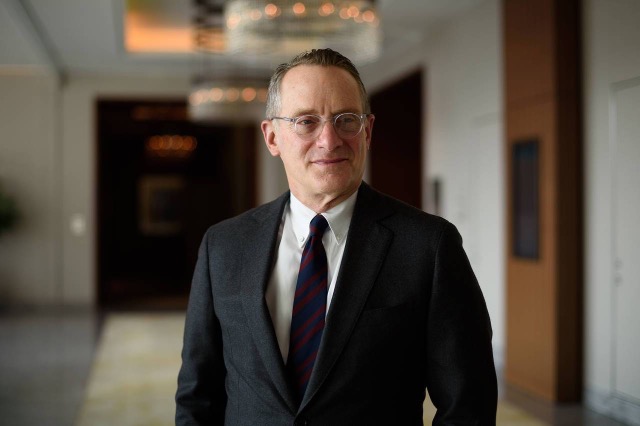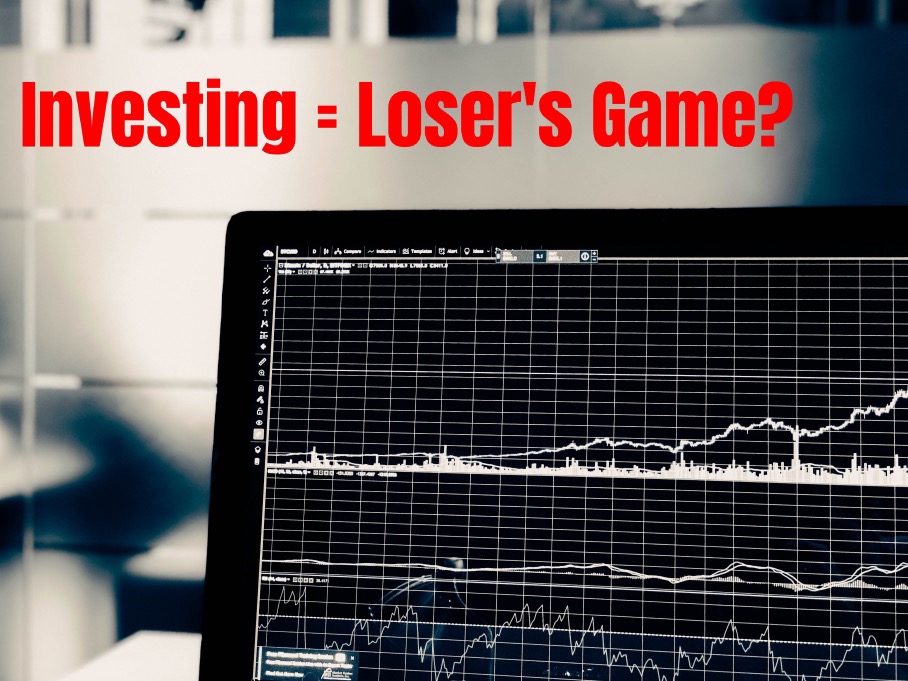"The Most Important Thing" by Billionaire Howard Marks
InvertInvestment
Publish date: Sat, 25 Aug 2018, 05:26 PM


More articles on Invert Investment
Created by InvertInvestment | Sep 08, 2018
Discussions
this is much better than coming out with lots and lots of investment education theories from gurus...
all these knowledge carry no values...it brings you no where..
unless you are happy with low risk low returns..slightly better than FD
I think everyone here in i3 looking forward for exceptional returns (above the average).
as such, the objective in i3 should be about unmasking the risk of a high risk high return stocks
hope, my message gets through to all the aspiring sifus
2018-08-25 18:07
Yeah, Howard Marks is amazing.
He's required reading really. Cant wait for his latest book coming out in October.
2018-08-25 18:21
how is that Ricky?
i am looking at in the same analogy of roulette...
https://casimg.com/w/articles-attachments/1/5a4/b7bdf9998f.png
example betting on Even or Odds is considered less riskier with lesser return than betting on 1-12 with same capital size but the latter having less probability of striking (about ~1/3 odds) compared to former (about ~1/2 odds).
Posted by Ricky Yeo > Aug 25, 2018 07:20 PM | Report Abuse
If a stock is high reward, it can't be high risk.
2018-08-25 19:28
what i think market perceive as high risk..is the odds of happening...the lower the odds the higher the risk for the same bet size
example if a company started having potential to get awarded with big contract ensuring high revenue stream for a long period...
and due to this its selling at a rather high price (relative to being not awarded)...
the risk is basically the odds of not getting the contract
2018-08-25 19:32
and the contract is considered a big reward if gets it...the price it should sell after getting the contract is much much higher..
meaning there is a very high reward waiting for those willing to take a higher risk now (at current price)
2018-08-25 19:35
This bro got track record. Alex listen.
Probability bro, u heard of Kelly? Macam yes when used in poker, but when it comes to trading, one edge will work until it stops working. The edge is calculated by pulling historical data to test a certain trading technique.
Too canggih, quant stuff like that. No money to subscribe database also. I believe this is one example on risk and return. In fact, my upcoming PhD project will center on decision science.
2018-08-25 19:52
Because the expected value of
1) High Risk, High Reward,
2) Medium Risk, Medium Reward, and
3) Low risk low reward.
Is exactly the same.
You fuck up, when you take high risk for medium reward, and you are doing well when you take medium risk for high reward etc.
In those cases, the expected value is higher.
=====
Posted by probability > Aug 25, 2018 07:28 PM | Report Abuse
how is that Ricky?
i am looking at in the same analogy of roulette...
https://casimg.com/w/articles-attachments/1/5a4/b7bdf9998f.png
example betting on Even or Odds is considered less riskier with lesser return than betting on 1-12 with same capital size but the latter having less probability of striking (about ~1/3 odds) compared to former (about ~1/2 odds).
2018-08-25 19:53
everything is about Edge, Alex....
ROIC is about competitive edge..
getting the most beautiful chick is about your edge
getting higher salary in company is about your competency edge
even in animal kingdom..the strongest (having an edge) is to survive..
those who write TheEDGE also have an edge...
the ability for unmasking risk is about your edge against others
Posted by Alex™ > Aug 25, 2018 07:52 PM | Report Abuse
This bro got track record. Alex listen.
Probability bro, u heard of Kelly? Macam yes when used in poker, but when it comes to trading, one edge will work until it stops working. The edge is calculated by pulling historical data to test a certain trading technique.
Too canggih, quant stuff like that. No money to subscribe database also. I believe this is one example on risk and return. In fact, my upcoming PhD project will center on decision science.
2018-08-25 19:59
it all depends on your perceived risk...
for an insider who knows the chances of getting the reward is 90%..the risk is almost nil...for an outsider its big risk..
for a technical guy who understands the business, the plant operating process, he is sure to be able to forecast the future...
for him its less risk to pay a high price for the business..for a layman from accounting background..that could sound very risky...
Posted by Jon Choivo > Aug 25, 2018 07:53 PM | Report Abuse
Because the expected value of
1) High Risk, High Reward,
2) Medium Risk, Medium Reward, and
3) Low risk low reward.
Is exactly the same.
You fuck up, when you take high risk for medium reward, and you are doing well when you take medium risk for high reward etc.
In those cases, the expected value is higher.
2018-08-25 20:02
Yes.
You can apply it to whatever scenario you want.
Just make sure you are accurate about the risk you are taking on, and the possible profit and losses.
That's it.
Simple but hard.
2018-08-25 20:06
thats why always play in the game of your own competence...
one needs to know if they have an edge in the first place.
when we plot the investment return graphs of investors, it would be a bell curve...
those on the right having a higher return than the average (middle) are said to have an edge against those at the left of the curve...
2018-08-25 20:11
THAT IS WHY YOU MUST WATCH INSIDER'S MOVES.
IF ALL INSIDERS ARE BUYING AND BUYING QUIETLY LIKE NO TOMORROW CHANCES ARE THE STOCK GOING TO DO WELL SOME TIME IN THE FUTURE.
INSIDERS ARE LIKE PILOTS WHO CAN SEE FROM THE COCKPIT.
OR PIONEERS WHO ARE THE FIRST IN DISCOVERY.
OR SOMEONE WHO FOUND A HIDDEN SECRET FORTUNE YET UNKNOWN TO ALL.
ON THE OTHER HAND IF INSIDERS ARE SELLING LIKE NO TOMORROW AND ABANDONING SHIP...
CHANCES ARE SOME BAD OMEN GOING TO HAPPEN LATER..
IF THE PILOT HAS PARACHUTED WILL THE PASSENGERS DO OK?
SO IF INSIDERS DUMP EVERY SHARE TILL ZERO IS A WARNING SIGN TO GET OUT.
SO AS A GENERAL RULE BUY WHEN INSIDERS ARE BUYING QUIETLY WHEN THERE IS PESSIMISM. AND MUST CERTAINLY SELL WHEN SOME REAL OR PERCIEVED GOOD NEWS ARE OUT AND INSIDERS ARE SELLING IN EUPHORIA.
2018-08-25 21:00
>calvintaneng
>>>SO AS A GENERAL RULE BUY WHEN INSIDERS ARE BUYING QUIETLY WHEN THERE IS PESSIMISM. AND MUST CERTAINLY SELL WHEN SOME REAL OR PERCIEVED GOOD NEWS ARE OUT AND INSIDERS ARE SELLING IN EUPHORIA.
Agree, insiders' moves is one of the important aspects.
2018-08-26 12:02
To me, high risk in investment comes from too-high prices due to optimism and high expectation. How much risk is determined by odds offered and potential rewards, i.e. Expected Value.
A good company can be risky if you pay more than it's worth.
A bad company can be less risky if you pay less than it's worth.
Posted by probability > Aug 25, 2018 07:32 PM | Report Abuse
what i think market perceive as high risk..is the odds of happening...the lower the odds the higher the risk for the same bet size
example if a company started having potential to get awarded with big contract ensuring high revenue stream for a long period...
and due to this its selling at a rather high price (relative to being not awarded)...
the risk is basically the odds of not getting the contract
2018-08-26 12:47
Haha probability bro... Relationship is an edge too. If so and so is my uncle, and he is kaya, then my chance to get an edge with him is increased substantially...
Relationship at workplace too. Easier naik pangkat if ur boss like you, but not lick boot type la.. Haha
2018-08-26 12:50
Love this
Posted by probability > Aug 25, 2018 07:59 PM | Report Abuse
everything is about Edge, Alex....
ROIC is about competitive edge..
getting the most beautiful chick is about your edge
getting higher salary in company is about your competency edge
even in animal kingdom..the strongest (having an edge) is to survive..
those who write TheEDGE also have an edge...
the ability for unmasking risk is about your edge against others
2018-08-26 18:05
















probability
thanks for sharing, i find there is a big secret hidden on risk vs reward decision making....
what we need to first define is..
what is perceived as 'risk'?
and how is it perceived to give a higher 'rewards'?
I think if we can identify a stock under high risk high reward category, we can actually work to reduce the 'risk' or manage it such that we are certain to reap the fantastic rewards...
and i think i3 is a fantastic platform for sharing these and achieving it
2018-08-25 18:01